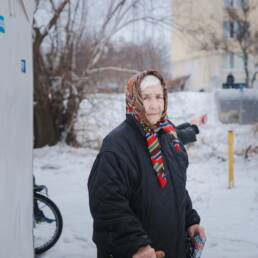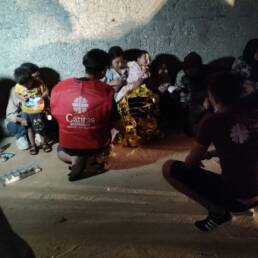Download the full report
Caritas organizes social services and social and legal counseling for asylum seekers, refugees and migrants.
The phenomenon of the “Sans-Papiers” or undocumented migrants is an indisputable reality in our societies. In several Caritas organisations, people with an irregular residence situation constitute over 50 percent of the assisted migrants. This bears some witness of the extent to which undocumented migrants are living in precarious situations in terms of health, housing, labour conditions etc.
The experience of the Caritas Services shows that there are several types of situations of irregular stay. . In reality, a variety of circumstances can eventually lead someone to a situation of undocumented migrant; circumstances clearly illustrating the marginalization processes that people in a weak situation face. This reality suggests that a range of responses needs to be found and implemented.
Moreover, this situation is fluid: one can observe progressive changes in the composition and the extent of the population of undocumented migrants as well as in governmental measures; whilst governments generally develop restrictive policies, one also finds certain diametrically opposed examples, some of which demonstrate a better understanding of individual situations and others which are inspired by different motivations: regularisations based on labour, family situation, long term residence etc. These measures show that the complexity of the problems has, to some extent, been taken into consideration.
The complexity of the situation is evidenced by a new terminology which is developing: “suspension of the order to leave the country”, visa of “tolerated person”, “temporary leave to stay for exceptional reasons”, status “of humanitarian protection”, “special protection status”, leave to stay “private life and family life”, etc.
more information
Caritas Europa
Rue de la Charité 43
1210 Saint-Josse-ten-Noode
Brussels
Tel: +32 (0)2 280 02 80
Fax: +32 (0)2 230 16 58
info@caritas.eu




